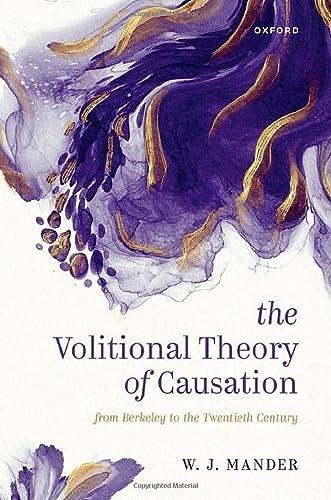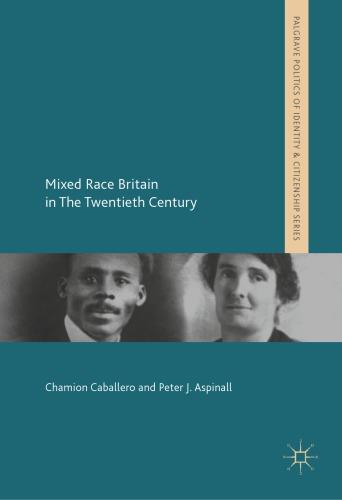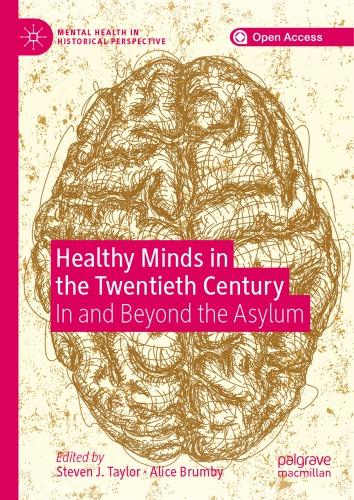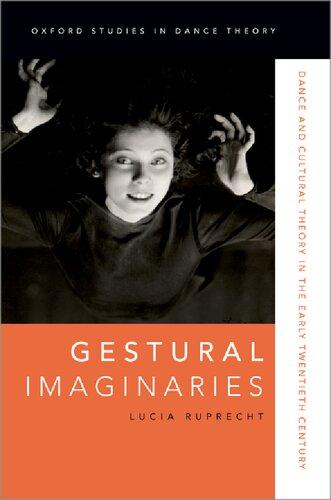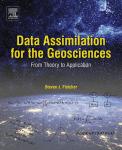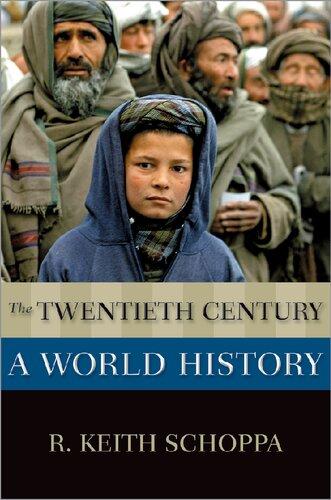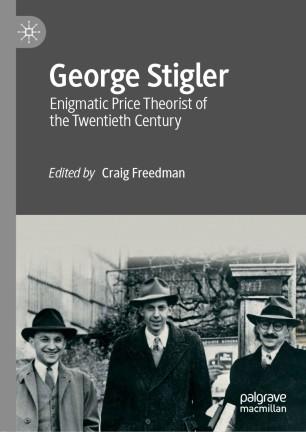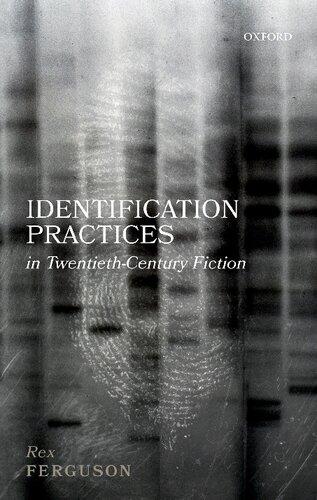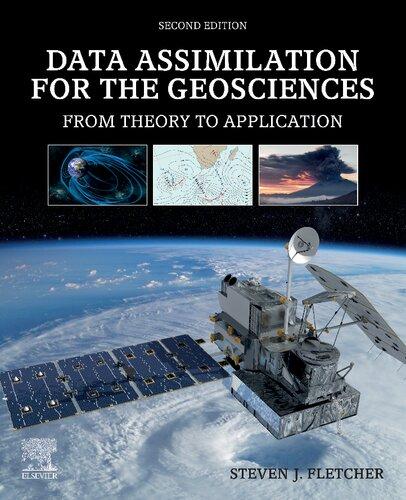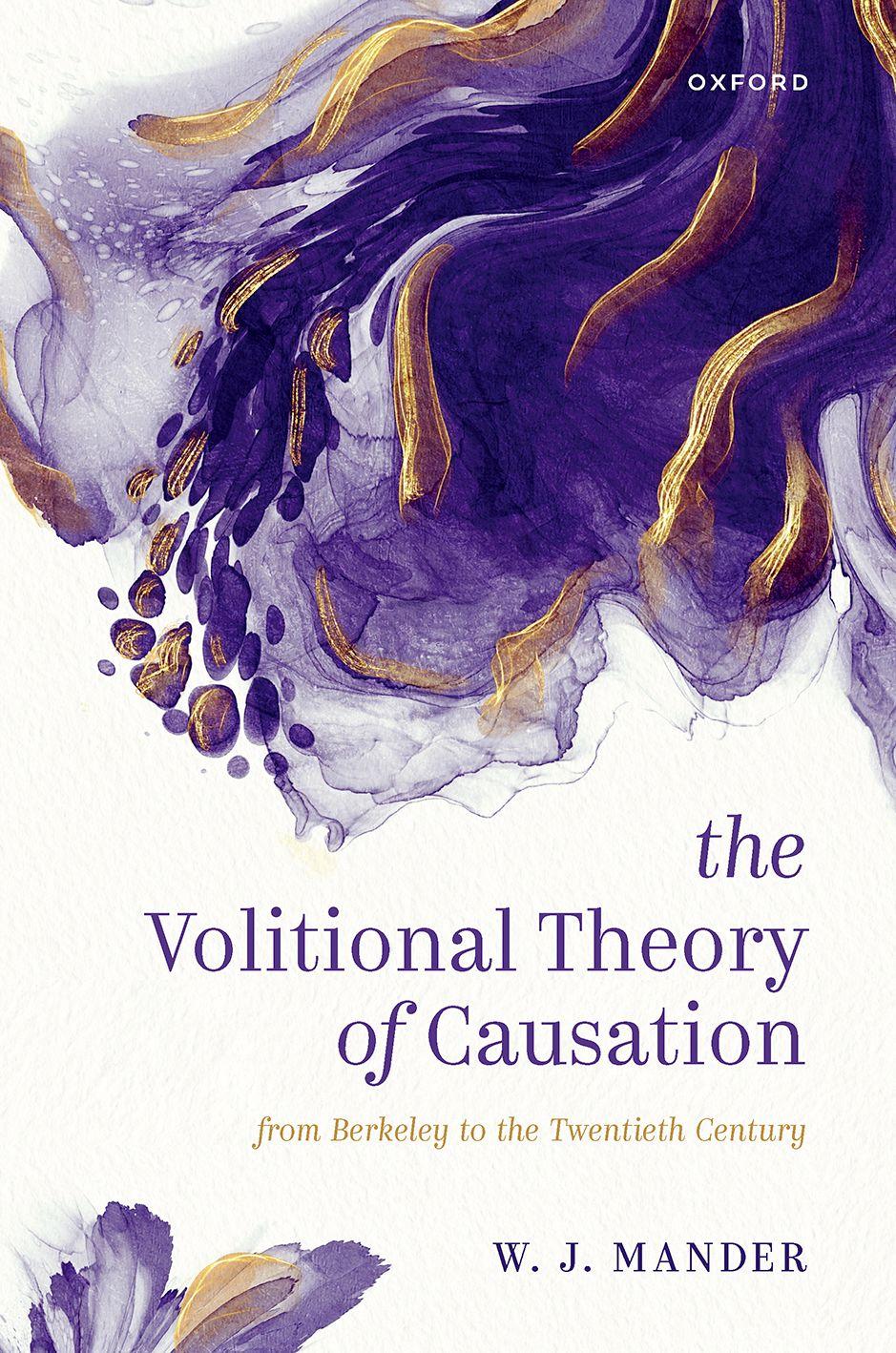Introductorydiscussion
1.1Thevolitionaltheoryofcausation
Thisbookpresentsahistoryofthevolitionaltheoryofcausation thephilosophicalproposalthatvolition,orwill,ofthesameorbroadlythesamestampasthat whichweexperienceinourowndeliberateandvoluntarydoings,shouldbetaken asthebasisforallcausality.
Pre-reflectivecommonsensesupposesthatacause bringsabout or produces its effect.It makesithappen.Butthisaspectofwhatphilosophersterm ‘efficient causation’ ispuzzling,forasDavidHumenotes,ifwepaycarefulattentionto preciselywhatisgiveninimmediatesenseexperience,itwouldseemthatweare presentedwithoneeventfollowedbyanother,butnotwithanythingwhichmight becharacterizedastheone generating or puttingforth theother.The ‘creation ’ or ‘ power ’ or ‘necessaryconnection’ which,onthefaceofit,seemsaquitemanifest aspectofthephenomena,oncloserinspection,eludesus.Thevolitionaltheoryof causationrecognizesthisanalysis,butarguesthatthecaseisquiteotherwiseifwe lookinsteadtoourexperienceof ourselves.Inreflexiveawareness,itmaintains,we feelourselvesto bringabout or produce ourownactions,choices,andthoughts. Theydonotsimply appearbefore us,stilllessarethey doneto us;rathertheyare performedby us.Theyarewilledorvoluntary.Itishere,arguesthevolitional theory,thatwe findgenuinelyefficientcausation.Wefeelorexperienceourselves tobeeffectivecausalagents.
Whatwe find inourowncase,wemayreasonablyjudgetakesplacealso inour fellowcreatures. Althoughwedonotexperiencetheiractionsinthesamewayas wedoourown,wenonethelessinferthattheyareagentsjustasweare.Moreover, thetheorycontinues,takingaconsiderablybolderstep,thatsameinferencemay beextendedto theexternalworldatlarge also.Forifcausationisamatterof generationorforceorpower,andsuchinfluenceisfeltdirectlyinourowncase, maywenotconcludethatsomethinganalogoustakesplacewheneveronething influencesorbringsaboutanother?Maywenotconcludethatthenatureofthe productiveactivitywhichliesbehindallcausationissomethingdisclosedtousin thecaseofourownvolitionalagency?Lookedatfromtheexternalorthird-person pointofview,everywhereintheworldcausationis ‘dark’ tous,but(goesthe argument),graspedinintrospectionwithrespecttoourown first-personagency, wecatchitatwork,andthishappyinsightencouragesustosupposethatwhatwe observehereisinfactthebasisofallcausality.
This firstchapterintroducesthetopicbycontextualizingitwithincurrent scholarlydebate,outliningthemethodologyadopted,settingoutthebasicelementsofthecausaltheoryofvolition,detailingthemainissueswhichanyadequate formulationneedstoaddress,distinguishingthetheoryfromsuperficiallysimilar rivalsand, finally,offeringapreliminarytaxonomyofdifferentwaysofthinking aboutthenotionofwill.
1.2Methodologyandapproach
Fewtodayknowmuchaboutthevolitionaltheoryofcausation,andevenfewer havegivenitanyseriousattention.Thereexistsnotasinglemonographorpaper devotedtoit.¹Intheirdefencecontemporaryphilosophersmightclaimthatitis aneccentricandinfrequentlyentertainedposition,andthatthereexistallsortsof rareandpeculiarviewsthatbusysensiblethinkerswiselyignore.Itisinresponse tothisthoughtthatIhavewrittena historical studyofthevolitionaltheoryof causation.Forifcurrentopinionregardsthissuggestionasanunusualone,of minorimportance,thehistoricalrecordshowsotherwise,revealing asthisbook willdemonstrate thatitisatheorywhichhasbeenproposedanddeveloped againandagainthroughoutthemodernera.²Itsobscurityisonlyarecent phenomenon.
Thisfactwillcomeasnewseventomanydedicatedhistoriansofphilosophy, andyetitishardlysurprisingthatcontemporaryhistoryofphilosophyshould sufferfromthesamepartialitiesandblind-spotsascontemporarytheoretical philosophy.ThomasKuhnfamouslyexplainedhowsuccessfulschemesofthought (or ‘paradigms’)consolidatetheirdominantpositionbyrewritingintellectual historyintheirownfavour,³andthisisastrueforphilosophyasitisforany otherdiscipline.Today,naturalistandempiricistthinkingdominatesamong philosophers,andmodernhistoriesofphilosophyarewritteninsuchawayas toreinforcethat.Hencecurrentwork,whilehighlyinterestedinthequestionof causalityitself,approachestheissuethroughanalmostentirelyHumeanlens, leadingiteithertoomitthevolitionaltheoryentirely,orelsetoside-lineitasarare andinsignificantfootnote.Butthatisamisrepresentationofhistoryitself,foras
¹Whiletherecanbefoundinthecurrentliteratureahandfulofstudieslookingatthevolition-based causaltheoriesofsomeofthedifferentthinkersthatweshallexamineinthisbook,nonedoessoin detail,orrecognizestheseaccountsasinstancesofamoregeneralapproachtotheconceptofcausality runningthroughthehistoryofmodernphilosophy.Neitherthe RoutledgeEncyclopediaofPhilosophy northe StanfordOnlineEncyclopediaofPhilosophy,northe OxfordHandbookofCausation acknowledgestheexistenceofthevolitionaltheoryofcausation.
²InordertomakethisenormoustopicmanageableIhaverestrictedmyselftothemodernera,but innosensewouldIwanttosaytheseideasarewithoutearlierprecedent.
³ThomasKuhn(1962) TheStructureofScientificRevolutions,Chicago,IL:UniversityofChicago Press,ch.XI. 2
thefollowingchapterswillshow,consistentlyoverthelast300years,thevolitional theoryhasattractedtheinterestofmanyablephilosophersfromavarietyof differentbackgrounds,whosecollectivelabourshavedevelopeditwithsubtlety andsophistication.Itssupportersrangefromthosewhoseviewsaboutcausality arewell-knowntothosewhoarerenownedbutwhoseviewsaboutcausalityare lessfamiliar,totheonceveryfamousbutnowlargelyforgotten,tothosewhose workneverreallyreceivedtheattentionthatitmerits.Moreover,manyother equallytalentedthinkerswhohaveregardedthetheoryas mistaken haveeither considereditattractiveenoughortakenitserrorasseriousenoughtothinkthat theproposalmeritscarefulcriticismandrefutation.Thepresentbookaimsto makegoodthislargegapinourhistoricalknowledgeandatthesametime,inso doing,toprotestagainstthenarrownessoforthodoxthinkinginthehistoryof philosophythatcanallowanentiretraditionoftheorizingtobeignored despite itspersistenceandsophistication simplybecauseofitscurrentunpopularity.
Readerswillbesurprisedtodiscoverhowmanycelebratedphilosophers defendedorseriouslyengagedwiththevolitionaltheoryofcausation.Butas hintedabove,atthesametime,besidesthesefamousnames,thestudytakesin manyother ‘minor’ and ‘neglected’ figures,anditdoessodeliberately.Forone thing,fameisrarelyconstantovertimeandevenacursoryexaminationofthe historyofthehistoryofphilosophyshowsthatthe figuresregardedinoneageas vitalorseminal,inanothertime,maybedowngradedorignoredaltogether.Thus, manyoftheforgotten figurestreatedinthisstudywereconsideredasfantastically importantintheirday,andreadingthemnow,theyarestillvitallyinterestingand worththinkingabout.Butfurthermore,thinkingaboutthe ficklenatureof philosophicalfamecanonlymakeusreflectonitsverysignificance.Notevery philosopherisground-breaking mostofusarenotgeniuses andifamongthe largecastof figuresthatwemeetalongthewaysomearedecidedly ‘minor’,itis surelynolessimportantthatweexaminethesethinkersalso.Thisisvitalifwe wishtoarriveatarecordwhichistrulyrepresentativeof historicalreality.Claims oftheform, ‘Philosophersatthistimethoughtsuch-and-such ’ or ‘Afterthistime, philosophymovedinsuch-and-suchdirection’ cannotbedefendedbyreferenceto justoneortwo,possiblyunusual,cases,thoughfartoomanyhistoriesofphilosophyattempttodoso.Butfurtherthanthis,afocusonmorequotidian figuresis oftenofgreaterillumination philosophically,sincetheunconventional ‘greatness’ or ‘genius’ whichperiodicallyshiftsphilosophicaldebatealong,forallthatitis memorableorexciting,oftencomestogetherwithaone-sidedover-emphasisor blindnessthatitistheworkofthosewhocomeaftertotrytomitigate.Toonce againemploytheterminologyofThomasKuhn,theworkofmostphilosophyis ‘puzzle-solving’ , ⁴ takingtheinsightsandinnovationsofoneormorevisionary
⁴ Kuhn, StructureofScientificRevolutions,ch.IV.
figuresandattemptingtodealwithobjectionstothem,toaccommodatethemto commonsense,ortointegratethemonewithanother.Inthislabour, ‘minor’ philosophersplayacrucialrole.
Abriefwordisinorderhereaboutthe organization ofthisbook.Ihavetriedto tellthestoryofthevolitionaltheoryofcausationinchronologicalsequence,butin ordertoavoidtheexcessivecomplexitythatcanresultfromtheconstantto-andfrooflivingphilosophicaldebate,Ihavelargelykepttogethertheviewsofsingle thinkersandeven,toadegree,thoseofproponentsandofcritics.Thus,although offeringacontinuousnarrative,theworkisbrokendownintorelativelyselfcontainedsections,makingitsuitableforuseasareferencetoolinthehistoryof philosophy.Inevitably,thishasresultedinafewhistoricaljumpsandbacktrackings,butthesehavebeenindicatedandkepttoaminimum.
ItshouldbenotedthatIdescribethebookasahistoricalandanalyticalstudyof thevolitionaltheoryofcausation,fortheworkisofferednotsimplyasanexercisein the historyofideas butalsoasacontributiontowards philosophicalanalysis. Thatis tosay,Iwishtothinkaboutthevolitionaltheoryofcausationitself,bymeansof consideringwhatpastphilosophershavesaidaboutit,ratherthansimplyenterinto historicalexegesisofthatrecord.Thus,thevariouscontributionsareassessedas theyareencounteredandcomparativejudgementsareattempted,whilethewhole endswitha finalchapterthatbringseverythingtogetheranddistilswhatmaybe learnedfromthislonghistoryofthought;thatistosay,whichsetsoutclearlythe theory’sstrengths,itsweaknesses,anditsprospectsforfuturedevelopment.
1.3Thefeelingofcausality
Itwillbeclearfromtheinitialpresentationofferedthattherearetwopartstothe volitionaltheoryofcausation.Inthe firstplacethereisaclaimthat,evenif externalrealityseemstobewhollyinert,withininnerexperiencewe findasense ofcausalpower.Asweshalldiscover,thatwedo genuinely meetwithsuchinner causalityisacontestedclaim perhapsthereissimplynosuchsensationor perhapswemisunderstandandmisdescribewhatitisthatwefeel butthatwe seem todosoisanimmediatelyplausibleassertiontowhichtheexperienceof everyoneattests.
Itishardtodenythatweexperienceourownbodilydeedsandourown thoughtsasactivelybroughtaboutbyus,aseffectsofourcausation,asthings we do,ratherthanoccurrenceswhichsimplyhappen,orpassbeforeourdisinterestedview.Invokingaslightlyoddformofspeech,wemightsaythatouraction andourthinkingareeventsbroughtabout byourownwill. Orusingamore familiarlexicon,wemightsaysimplythattheyare voluntary.Totakeapairof examples,IstepforwardtwopacesorIchoosetothinkaboutthevolitionaltheory ofcausation.Totakeacontrastingpairofexamples,myarmtwitchesorI findmy
thinkingbroughtbacktosomeremarkfromearlierinthedaywhichhasupsetme. Thereisadifferenceherethatweseemableto feel,howeverhardwemay finditto putthatfeelingintowords.Wecontrast actions,whicharedeliberateorintended, withmereoccurrences,whichareuncontrolledorunchosen.
Althoughfamiliar,theexperienceofvolitionisobscure.Indeed,somewould evendenyitaltogether.Andinthelightofsuchreservationstheneedforaccurate phenomenologybecomesallthemorepressing.However,animportantwarning mustbeissued.Inattemptingtodepictthefeelingofagencyitistemptingtoreach forahostofcausalphrases.Wemay,forexample,describeitas ‘thesensethat actionsarecausedorbroughtaboutbyourwill’ or(invokingtheidiomofagentcausality)as ‘thesensethatweourselvesgenerateorproduceouractions’.Asloose orsuggestiveindicators,suchlocutionsmaybewelcomed,butiftheyareoffered asanalysesordefinitions,theproponentofthevolitionaltheoryofcausationmust certainlyrejectallsuchcharacterizations,fortheyalreadyinvokecausality,andwe maynotusecausationtoilluminateagencywhenour finalintentionistouse agencytoexplaincausation.
Manyversionsofthevolitionaltheorynoteasecondsidetothefeelingof personalcausalitywhichtheymakecentraltotheiranalyses.Remindingusthat causationisadyadicrelation,inthesensethatwheretherearecausestheremust alsobeeffects,theypointoutthatjustasinnerexperiencegivesusaninsightinto acting or affecting otherthings,ittellsusalsoaboutbeing actedon or affectedby otherthings.Thatistosay,itcanjustasplausiblybeclaimedthatweintrospectivelysensewhatitistobe passive asitcanthatwesensewhatitistobe active. Thereisafeltdifferencebetweenwhatwedoandwhatisdonetous,between(for example)pushingsomeoneoutofthewayandbeingpushedoutoftheway.Aswe shalldiscover,theprecisenatureoftherelationbetweenthesetwosensesisas muchtobediscussedasisthenatureofthetwofeelingsthemselves.
1.4Howtoexplaincausalityinthematerialworld
Advancingbeyondits firstclaimthatwegenuinelyenjoyinnerfeelingsofourown causalagency,thesecondpartofthevolitionaltheoryconsistsinthefurther andhighlyexpansiveclaimthatsuchintuitionsgiveusthemodelforcausation moregenerally.Avisiblecasecanhelpusunderstandmattersthatmoreusually remainhidden.Forexample,askeletonclockallowsustoseehowallclocks work,personalexperiencegivesusinsightintothefeelingsofothers,whilea behind-the-scenesdocumentaryaboutsomeorganizationcanshednewlightona wholeclassofsimilarcases.Itismodelssuchasthesethatadvocatesofthe volitionaltheoryhaveinmindwhentheysuggestthat first-personexperienceof causalpoweraffordsusawindowontowhatliesbehindtheotherwiseopaque phenomenaofcausalityatlarge.
Aswillreadilybeappreciated,thissecondsidetothevolitionaltheoryisevery bitasdifficultandcontentiousasthe first.Thereareperhapstwoseparate problemstothinkabouthere,onemethodologicalandonemetaphysical.Inthe firstplace,wemustask,whyisitsensibletotakeourowncausalityasthemodel andtypeforallcausation,ratherthanjustoneparticularformofit,perhapsevena specialandanomalousone?Inthesecondplace,thequestionmustbeput,ifwe aretotakeourownvolitionasthetemplateforunderstandingcausalityingeneral, howcoulditpossiblybethecasethattheseeminglyinanimateworldinfactworks inthisway?
(1)Evenifitistruethattheexperienceofvolitiongivesusthekeytoourown causality,fromamethodologicalpointofview,itmaybequestionedwhywe shouldthinkthatwehavethereindiscoveredanythingthatappliesanyfurther thanourowncase.Whysupposethatthatcausalityistypicalofcausalityin general?Whyshouldthecomparativelysmallobservedsamplebethoughttotell usanythingaboutthecolossallyvastunobservedsample,especiallywhen(wewill bereminded)humanbeingsandtheirbehaviourseemstrikinglydifferenttoother objectsandcausalsequencestakingplacearoundthem?Theinferenceseemsnot simplyunjusti fied,butpositivelyreckless.
Suchachallengemightevenconcedeafairamounttothevolitionaltheory.The criticcouldallowthatthenotionofcausalityissomethingwhichis firstpresented tous throughvolition,throughtheexperienceofourownactsofproduction,but suggestthatwesubsequentlyworkourwaytoamoregeneralconceptonlyaswe cometorecognizethatthereareother non-volitional waysofembodyingsuch productivepower.Theadvocateofavolitionaltheoryofcausation,thecomplaint mightgo,hasfallenintothetemptingandnaturalerrorofsupposingthattheir initialencounterwithinstancesofsomephenomenamayserveasamodelforall casesofthatphenomena.
Canthevolitionaltheoryrespondtothisobjection?Isthereanygoodreasonto thinkthat all causationinvolvesvolition,totakecaseswherewecanseewhatis goingonastypicalofthosewherewecannot?Thisisaseriousanddifficult challenge,andthestudyaheadwillrevealbothvaryingdegreesofsensitivitytoit andvariousdifferentkindsofanswer.Withoutpre-emptingthedetailsofthat discussion,itisusefulherejusttobrieflylistthemainsortsofresponsepossible. (i)Inthe firstplace,itmightbearguedthatreferencetovolitionisthe only wayto legitimizeormakesenseofourexistingideasandinferencesconcerning causality thatallotheraccountsfail andhencethatifwearetoavoidcomplete scepticismornihilismaboutcausality,wehavenochoicebuttoembracea volitionaltheory.(ii)Alternatively,bywayofasecondanswer,onemighttryto arguethatintheexperienceofvolitionwhatwegetholdofisthevery essence of causality,innowaycolouredbytheparticularformittakes.Ascatchingacoldin December,youlearnwhatitisliketocatchacold,notjusttosuccumbtoa winter
cold,soitmightbesaidthatinvolitionweexperience power ratherthanjust humanpower. (iii)Athirdsimilarsortofanswer perhapsaversionofthatjust given mightfocuson meaning.Hume’sgreatinfluenceinsettingthetermsofthe debateaboutcausalitywastogiveitasemanticfocus,suchthatthechallenge becamethatof findinganysignificanceatallinthenotionofcausalefficacyor power.Respondingtothattest,itmightbesuggestedthatonlybyreferenceto volitioncanwegiveanycontenttotheideaofcausalitybutthat,sincethisstep providesuswiththeverymeaningoftheconcept,weareentitledthentoextendit aswidelyasweplease.(iv)Fourthly,andquitedifferently,onemighttrytotakean empiricalapproachandargue(despitevariousappearancestothecontrary)that seeminglyinanimatecasesofcausalityareintruthfundamentallysimilar,inthe mostimportantrespects,tothesortofcausalityrevealedtousinourownvolition. ThisapproachismostfamouslyassociatedwithSchopenhauerwhosawthe stirringsofwilleverywhereinnature.(v)A fifthlineofargument whichwe mightcallananti-dualist,orcontinuity,strategy wouldbetoappealtothe difficultiesofadmittingintoexistenceradicallydifferentsortsofcausation,orof integratingourownvolitionalcausalitywiththatwhichappearstooperateinthe worldatlarge.Why(itmightbesaid)complicateone’sontologywithtwodistinct speciesofcausalityif,instead,everythingcanbeexplainedusingjustonetype volition?
(2)Shiftinggroundfromthemethodologicaltothemetaphysical,andputting toonesideforamomenttheissueofwhatreasonstheremightbeforadvancing thetheory,perhapsthemainobjectiontosupposingthatcausalityatlargeconsists involitionisthesheerimplausibilityofthatsuggestion.Exceptingthecaseofour fellowhumans(andperhapshigheranimals),theoverwhelmingpreponderanceof causalityintheworldaroundusseemstobepreciselynon-volitional.Thesun whichcausesthepuddleofwatertoevaporatedoesnot will thatitdoso,anymore thandoesthewindwhichwhipsuptheseaintowaves.Butifcausationisvolition, whatexactlyarewetothinkaboutalloftheseeminglynon-mentalcausationthat occurs?Asweshallseethroughoutthefollowingchapters,therearetwodistinct levelsatwhichonemayrespondtothischallenge,dependingonthedepthofthe analysisproposed.Thesewemaytermthe ‘instrumentalist’ andthe ‘metaphysical’ answers.
Naturalscientistsspeakallthetimeaboutcausesandcausallaws,butthey scarcely,ifever,invokethecategoryofvolition.Doesitfollow,then,thatan advocateofthevolitionaltheorymustregardthebulkofnaturalscienceas hopelesslymistakenandblind?Notatall.Asweshallsee,manydefendersof thevolitionaltheoryarguethatweneedtorecognizetwodistinctconceptsof causality.Innerliferevealstoustrueorefficientcausality.Butempiricalscience hasnobusinesswiththatconcept.Adoptingwhatinmodernphilosophical terminologyisknownasan ‘instrumentalist’ philosophyofscience,itisargued thatscienceconcernsitselfonlywithregularity,chartingthepatternsand
sequencesthatsensoryobservationuncoversforusintheexternalworld. Itreportsnothingmorethanregularoccurrence,forthatisallthatisneededto meetitsmainbusinessofprediction.Wemightcallthisuniformity ‘causation’ , butitwouldbesafertocallit ‘scientificcausality ’,or,evenbetter,todroptheword altogetherandtalkinsteadabout ‘laws’ and ‘regularities’.For,intruth,thiswayof regardingtheworlddoesnottouchuponquestionsof(efficient)causalityatall.In moderntimes,instrumentalismhasbeenpopularamongthosewhoaresceptical about,orevenoutrightdismissiveof,causality,butitisapositionequallyavailable todefendersofthevolitionaltheoryofcausationwhowishsimplytocompartmentalizescienceandmetaphysics.Itshouldbenotedthat,employedinthis fashion,suchaninstrumentalistapproachdoesmorethanjustallowthedefender ofavolitionaltheorytoretaintheoutputsofnaturalscience,foritmayalsobe usedtodefendthetheoryfromcriticismsmotivatedbysuchscience.Itiswidely supposedbythinkersofanaturalisticcastofmindthattakingascientificviewof theworldunderminesanyattempttoexplaincauseasvolition,forscience finds noplaceforvolitioninitsanalyses.Butifthedeliverancesofsciencesaynothing aboutcausalityatall,ifitoffersussimplyobservedregularitywhichhasnothingat alltodowithgenuinelyefficientcausation,thentheteethofthatparticular objectionarethoroughlyblunted.Inthisway,astressonthedistinctionbetween genuinecausalityandscientificcausalityisavitalcardtobeplayedbythose wishingtoarguethattheoriesofthelattershouldnotbeusedtoundermine theoriesabouttheformer.
Theworkingsofnaturalscience,then,canbepreservedanditsthreatskeptat baybyadoptinganinstrumentalistattitude.Butthatisarelativelysuperficial response,andifourconcernspressdeeperthanthisintotheunderlyingmetaphysicsofcausation,wewillnotlongbesatisfiedwithit.Whataccountsforthe vastsystematicregularitiesthatcharacterizetheapparentlyinanimateandnonvolitionalworld?Onemightperhapsattempttoshrugoffthatquestionandsay thatsuchuniformityisjust brute,acollectionofmerefactswithoutanydeeper explanation.Butifanexplanation,intermsofvolition,isforthcomingforthe regularitiesthatmark ourownbehaviour,itseemsarbitrarytodenythattherecan beanyreasonforthoseregularitiesthatcharacterizetherestofthenaturalworld. Analternativeresponse wemightcallitaquietistone wouldbetomaintain thatwejustdonotandcannot know whatexplainssuchregularity.Thisismore attractive,andseveraladherentsofthevolitionaltheoryaresympathetictoit. Reid,Mansel,andMartineauallexpressmodestyabouthowmuchwecanreally knowofsuchmatters.Nevertheless,suchintellectualdefeatismisinthelastresort unsatisfying,especiallyinthefaceofchallengesfromcriticswhomaintainthat whatisbeingproposedisabsurdorimpossible.Itthusseemsthatifthevolitional theoryofcausationistobeaseriouscontender,itsadvocatesmustventureatleast somesortofdeeperexplanation evenifonlyatentativeone oftheregularities thatobtainintheapparentlyinanimaterealmofnature.Thefollowingchapters
revealacomplexsetofdifferentsuggestions,buttoframethatdiscussionitwillbe usefultodelineatethefourpossiblesortsofresponse(notingthatthelinesof demarcationbetweenthemarenotnecessarilyentirelysharp).
(i)The firsttypeofanswerreferstheeventsofnaturetoanexternalcause.In accordancewiththevolitionaltheorythiscausemustbeendowedwith volition,whichinturnmeansthatitmustbeunderstoodassomesortof spirit.Now,itmightpossiblybethattheworldcontainsalargenumberof suchspirits localdeities,nymphs,angels,ordemons whoinfluencethe differenteffectsofnature.Certainly,peoplehaveheldsuchbeliefsinthe past.However,pluralisticanimismofthistypeisanextravaganthypothesis,andmorecommonamongdefendersofthevolitionaltheoryhas beentoreferalleffectstothecausalpowerofonecontrollingspirit,God. ThisisthepositionofBerkeley,Reid,andMartineau,andmanyotherswe shallmeetinthisbook.Accordingtothisscheme,Godcauseseverything intheworldthatisnotcausedbyother finitespirits,suchasourselves. (Strongerstill,ifthetheoristsupposesthatthisclaimandanassertionof ourownagencycansomehowberenderedcompatible,itmightevenbe arguedthatGodisthecauseofabsolutelyeverything.)BeliefinGodwill beamajorobstacleformanycriticsbut,unlessonestartsfromaninitial prejudiceagainstsuchaview,itisaperfectlyviablemetaphysicalhypothesis.Agreatmanyphilosophersareandhavebeentheists.Itcanhardlybe an apriori requirementonanyacceptabletheoryofcausalitythatitbe compatiblewithatheism.Tothoseopentoit,thistheisticresponseisa simple,natural,andplausiblewayofdealingwithapparentlynonvolitionalcausality.Ittakesonlythreestepstogetthere.First,wecan seehowourownactionsarevoluntary,orexplained(caused)bythefact thatwewillthem.Second,itneedsbutanaturalandrelativelyeasy analogytomovetothethird-personperspectiveand,notingthatother peoplebehaveinsimilarways,totreattheiractionsassimilarlycausedby theirvolitions.Third(andthisisadmittedlyalargerlogicalstep),wemay lookattheeventsofnatureastheactionsofGod,or(slightlydifferently) aseffectsbroughtaboutbytheactionsofGod.
(ii)Asecondandalternativewayofbringingincausationtoaccountforthe eventsofnaturewouldbetoattributecausalitytoindividualthings themselves.Inthiscase,ifwemaintainthatcausalitycallsforvolition, whichinturncallsformind,themoveresultsinmonadismorpanpsychism,thatistosay,theviewthateverythinginnatureissomehowminded oranimate.Causalpowerinvolvesmind,thethingsoftheworldexhibit causalpower,andsowemustconcludethatthethingsoftheworld areminded.(Insofaraswefurtherthinkthatthisfactgivesthewholeor maincharacterofthesethings thattheyarenotonly minded,but
mindlike thepositionarrivedatwouldalsobeakindof idealism .) Contrapopularbelief,theclassofphilosopherswhoadvancemonadologiescontainsmorethanjustonememberand,whilstLeibniziscertainly itsmostfamousrepresentative,itincludesalsoJohannFriedrichHerbart, BernardBolzano,FelixRavaisson,JamesWard,HerbertWildonCarr,and A.N.Whitehead.⁵ Panpsychism,too,isatheorywithmanyadherents, fromSpinozaintheseventeenthcenturythroughGustavFechnerand W.K.CliffordinthenineteenthtoT.L.S.Spriggeinthetwentieth.⁶ Interestinglyenough,seriousattentionhasbeengivenoflatetothe panpsychisthypothesisasawaytosolvetheissueofemergenceinthe philosophyofmind,⁷ butifitisreasonabletoembracesuchapositionin ordertosolvethemind-bodyproblem,canitbeanylessreasonabletodo soasawaytosolvethemetaphysicalpuzzleofcausation?⁸ Intheend,we mustsaythatevenwhilephilosophicalsystemsofthesekindsareunusual, nomorethantheismmaytheybesimplyruledoutfromthestart.
(iii)Facedwiththeaboveoptionsofeitherdivinecreation(Goddoeseverything)orpanpsychism(everymaterialthinghasitsownindividualwill), bywayofathirdkindofanswerwemightinsteadfavourwhatcouldbe regardedasasortofsynthesisofthesetwo,pantheism.Accordingtothis wayofthinking,thelifeofGod andespeciallythecausallifeofGod is immanentinandthroughthemanyseeminglydistinctprocessesofthe universe.Takingthemicrocosmasamodelforthemacrocosm,onsucha pantheisticanswerwemightsupposethatjustasanindividualhuman beingwillstheirownstates,thatis,theirownactionsandthoughts,sotoo theworld-soulbringsabouteverythingthattakesplacewithinitthrough itsownimmanentwill.Themovementofanygivenitem,whichviewedin isolationseemsmechanicalorinanimate,takeninawidercontextmight beseentobedeliberateandpartofanintentionalscheme.
(iv)Reviewingthethreesortsofanswerabovemightsimplyconfirmasceptic intheirhostileopinionthatthevolitionaltheoryofcausationrequiresone tobuyintosomeorotherextravagantandimplausiblemetaphysics,buta fourthsortofanswerisavailablewhichshowsthatthisneednotbeso.For itispossibletoembraceaslightlyweaker ‘analogical’ response,which
⁵ Forrecentdiscussion,seeJeremyDunhamandPaulinePhemister(eds.)(2019) Monadologies, London:Routledge.
⁶ Forarecenthistory,DavidF.Skrbina(2005) PanpsychismintheWest,Cambridge,MA:MIT Press.
⁷ ThomasNagel(1979) ‘Panpsychism’,in MortalQuestions,Cambridge:CambridgeUniversity Press,pp.181–95;GalenStrawsonetal.(2006) ConsciousnessandItsPlaceinNature:DoesPhysicalism EntailPanpsychism? Exeter:ImprintAcademic.
⁸ Fordiscussionofthisargumentanditshistory,seeHeddaHasselMørch(2020) ‘TheArgument forPanpsychismfromExperienceofCausation’,in TheRoutledgeHandbookofPanpsychism,ed. WilliamSeager,London:Routledge,pp.269–84.
concludesthatcausalityinthenaturalworldis,ifnotexactly ‘will’,thenat least ‘will-like’ orsimilartowill.Wemightsaythatcausesareanalogous to,orabitlike,amind;orthattheircausalityisanalogousto,orabitlike, volition.Will(itmightbeargued)givesustheprimarymodelforunderstandingcausation,butnotallvolitionis volitionasweexperienceit.That istosay,perhapscausalpowerconstitutesasinglegenusofwhichweare fullyanddirectlyacquaintedwithjustonespecies,namelyourown volition,butwhoseothermembersaresufficientlysimilartoitforthat limitedinsighttobeanilluminatingone.Itmaynotberighttoregardall causationas exactlylikehumanvolition,butitmaybesufficientlysimilar tohumanvolitionforthatcomparisontobebothlegitimateandthebest wehavetohand.Causalpoweratlargemaybebroadlysimilartothe powerofwill.
Sinceanalogiesandsimilaritiesaremattersof degree ,itshouldbeclearthat,on thisinterpretation,designationsbecomevagueanditispossibletoenvisionascale ofpositions.Thismightseemconfusing,butonewaytoimposealittleorderon thesituationwouldbetonotethat,besidesbeingamatterof ‘force’ , ‘ power ’ , ‘production ’ ,or ‘making’,volitionasweexperienceitisusuallyrecognizedas possessingavarietyofadditionalqualities,anditispossibletodiscusshowmany oftheseareretained,orhowcloselytheyareretained,insuchformsofcausalityas holdswaywithinthenon-humanrealmreality.Atleastsevendimensionspresent themselves,eachraisingaquestion:(a)Mustinanimatecausalitybefree?(b)Must itbeconscious?(c)Mustitbepurposiveorteleological,orcoulditjustbean aimlessimpulsetomoveforwards?(d)Doesit desire or want whateveritwills?(e) Doesit know whatitwills?Canit represent itstarget?Orisit,asSchopenhauer urged, ‘blind’?(f)Needitbeimmaterialormightitbe,insomefashionorother, physical?(g)Needitbeassessable ethically,orisitjusthumanwillingwhichis goodorevil?
Eachofthesequestionspicksuponsomeaspectofvolitionasweknowit,andif werelaxsomeoralloftheelementsinvolved,nodoubtwewouldendupwith somethingdifferentfromthevolitionwemeetwithineverydayexperience.As such,wemightwanttoaskourselveswhetheritisstill ‘will’?Butfromthepointof viewofphilosophicalmethodology,themorefundamentalquestionbecomesone abouttheverypossibilitiesof abstraction.Canweabstractoffsomeorallof freedom,consciousness,purpose,desire,intelligentrepresentation,immateriality, orethicalaccessibilityleavinguswithacorenotionof ‘ power ’,ordoallthesecome togetherasonepackage?Ifthelatter,thenthevolitionaltheoryofcausationwould indeedseemtocommitustosomethingliketheism,panpsychism,orpantheism, butiftheformertheremaybesomeroomleftopenforavarietyofdifferent analogicalanswers.Ofcourse,therewillbedie-hardnaturalisticthinkerswho rejectasunacceptablyanthropocentricanyideathatthenaturalworldmightbe
understoodas analogous tothehumansphere.Suchthinkerswillobjectin principletoanyattempttouseconceptsdrawnfromhumanexperiencetoexplain realityatlarge.Buttosetoneselfagainstsuchprogrammes abinitio isamatterof priormethodologicalprejudice,notreasonedobjection,andthereisnothingin itselfmetaphysicallyabsurdorcontradictoryinthesuggestionthatimpersonal agencymaybeanalogoustopersonalagency.Hence,nomorethananyofthe otherthreeoptionsfordealingwithinanimatecausality,canthesuggestionthatits underlyingmetaphysicsisanalogoustothatfoundinhumanvolitionbedismissed asinitselfa reductioadabsurdum ofthevolitionaltheory.
1.5Distinctionfromsimilartheories
Agoodwaytounderstandanyphilosophicaltheoryistodistinguishitfromits rivals.Thisisnotaprecisetool,sincetheoriesareoftenlargefamiliesand groupingstosomedegreeconventional.Closetothemargins,membersofdifferentclansmaybehardtodistinguish,andwemayevenhavetoacknowledgecases ofoverlappingmembership.Butdespitetheselimitations,suchactsofdistinction remainausefulclassificatoryexercise.Therearefourinitiallysimilartheoriesthat itishelpfultokeepseparatefromthevolitionaltheoryofcausation.
(1) Free-willtheories.Whilethereisasignificantdegreeofoverlapbetweenthe twoliteraturesastheydiscussissuesofagencyandefficacy,insofarasfree-will theoriesofferuphumanvolitionasaspeci fic perhapsevenanunusual kindof causality,ratherthanageneraltheoryofallcausation,theyarebestkeptseparate fromthevolitionaltheoryofcausation.Accordingtothevolitionaltheory,willisnot an extra or special kindofcausality,butratherthe normal type.Itshouldalsobe notedthat,evenwithrespecttotheactionof finiteagents,thevolitionaltheorydiffers frommanyfree-willaccountsinsofarasitattributesagencytothespecificnotionof anindividual’ s will,ratherthanthemoregeneralnotionofa personoragent.
(2) Occasionalism.Accordingtothedoctrineofoccasionalism,createdsubstancesarewhollyinertandunabletomoveanythingatall,eventhemselves.Only Godinhiscreativeinfinitudepossessespower,throughtheexerciseofhiswill,to bringthingsabout. “Themotorforceofbodiesisthereforenotinthebodiesthat aremoved,forthismotorforceisnothingotherthanthewillofGod,” argues Malebranche,thetheory’soriginator,fromwhichitfollowsthat “anaturalcauseis thereforenotarealandtruebutonlyanoccasionalcause,whichdeterminesthe Authorofnaturetoactinsuchandsuchamannerinsuchandsuchasituation. ”⁹ Itiseasyenoughtoseehowthevolitionaltheoryofcausationmaybeconflatedor
⁹ NicolasMalebranche[1674–5] TheSearchafterTruth,ed.T.M.LennonandP.J.Olscamp, Cambridge:CambridgeUniversityPress,1997,6.2.3,p.448.
confoundedwithsuchoccasionalism.Forliketheoccasionalist,thevolitional theoristoftenholdsthateverythinginthephysicaluniverse(andperhapseven inthewholeuniverse)isbroughtaboutbyGod,whilelikethevolitionaltheorist, theoccasionalistthinksthatallcausalityismental,inparticularthatitcomesfrom thevolitionofsomeagent.Yetthetwotheoriesareinfactdifferent.Lookingmore closelyatMalebranche,weseetworeasonswhythatisso.First,Malebranche deniesthat finitemindscancauseatall,directlyopposingthevolitionaltheory whichstartsoutfrompreciselythatfact.¹⁰ Second,occasionalismisreallytobe understoodas adivinetheory ofcausationratherthana volitionaltheory of causation,insofarasitholdsthatallcausationis fromGod.Itisonlysecondarily oraccidentally(becauseGodisspirit)thatsuchcausationcomesoutas mentalor volitional.ThekeypointhereisthatitisGod’ s omnipotence ratherthanhiswill perse thattheoccasionalistinvokes.Itis qua omnipotentbeing,not qua mind, thatGoddoeseverything.Tothevolitionaltheorytheessenceofcausalityliesin will,totheoccasionalistitsessenceliesindivinity,andthesearequiteseparate concepts,evenifasamatteroffactdivinecausalityisexercisedthroughthedivine will.Mattersbecomeabitmoreconfusedinsofarastheoccasionalistmayallow thatGod’scausationproceedsindirectlyaswellasdirectly,whilethevolitional theoristmayallowthatthecausalpowerpossessedby finitebeingsdoesnot precludeonesayingthatultimatelyallpowerisdivineinorigin.Givensuch qualificationsthetwotheoriesmaybecomeextensionallyequivalent.Buteven wheretheythusoverlap,atroottheyaredifferent.Oneholdsthatcausationis mental whiletheotherholdsthatcausationis divine.¹¹
¹
⁰ IfwetakeMalebrancheseriouslyinhisassertionthat “thereisonlyonetruecausebecausethereis onlyonetrueGod;thatthenatureorpowerofeachthingisnothingbutthewillofGod;thatallnatural causesarenot true causesbutonly occasional causes ” (TheSearchafterTruth,6.2.3,p.448)then, whateverhemayhavemeantbyfurtherclaimingthathuman ‘consent’ isabletosecureourfreedom,it cannothavebeentoattributetousanyspeciesofcausalpower.Thatsaid,thequestionofexactlyhow Malebrancheunderstoodhumanfreedomandagencyremainsacontroversialone,andnotall Malebranchescholarswouldagreewiththereadinggivenhere,arguinginsteadthathethoughtwe haveatleastsomepowerofcontroloveratleastsomeofourmentalstates.SeeSusanPeppers-Bates (2011) NicolasMalebranche:FreedominanOccasionalistWorld,London:Continuum;SeanGreenberg (2015) ‘Occasionalism,HumanFreedom,andConsentinMalebranche: “ThingsthatUndermineEach Other”?’ OxfordStudiesinEarlyModernPhilosophy 7,pp.151–86.
¹¹Torepeatapointalreadymade,philosophicaltheoriesarecommonlynotassharplydelineated anddistinguishedasthosewhodiscussthemarewonttoimply,anditiscertainlythecaseherethat Ihaveadoptedadefinitionofoccasionalismthatclearlydistinguishesitfromthevolitionaltheoryof causation;theonerootingcausalpowerin divinityperse,theotherrootingitin volitionperse.Some historiansofphilosophyhavetakenawiderunderstandingofoccasionalism,asconsistentwithcreated beingssuchasourselveshavingatleastsomecausalcontroloverourownmentalstates,orevenour bodies.(Foraconsiderationofthevariousdifferentpositionsthathaveatdifferenttimesbeen characterizedas ‘occasionalist’,seeSukjaeLee(2020) ‘Occasionalism’ , StanfordEncyclopediaof Philosophy,ed.EdwardN.Zalta,<https://plato.stanford.edu/archives/fall2020/entries/occasionalism/>.) Iftherequirementthatcausalitybeexclusivelydivineisdroppedinthisway,thenthoseoccasionalists wholocatecausalpowerineitherthewillofGod or thatofhiscreaturesmayalsobecountedas advancingwhatIamcallingthevolitionaltheoryofcausation.
(3) Themanipulationtheoryofcausation.Volitionaltheoriesofcausationneed alsotobedistinguishedfrommanipulationtheoriesofcausation.Theseareoften saidtooriginatewithR.G.Collingwoodwho,ina1937essayoncausality, highlightingthreedifferentwaysinwhichthetermmaybeemployed,noted thatinoneofthosesenses,
thewordcauseexpressesanidearelativetohumanaction:theactioninthiscase isanactionintendedtocontrol...thingsin ‘nature’ ,or ‘physical’ things.Inthis sense,the ‘ cause ’ ofaneventinnatureisthehandle,sotospeak,bywhichwecan manipulateit.¹²
Forexample,Imightdiscoverthatplantsmaybeencouragedtogrownmore stronglybycuttingthemback,orthatfoodmaybepreservedforlongerbysalting it.Acause,onthisschemeofthinking,isunderstoodas ‘awayofbringing somethingabout’.Thehighlypracticalfocusofthistheorycertainlyhelpsto explainbothourknowledgeofandourinterestinquestionsofcausality,but invokingnotionsofagencyandmanipulationhasseemedunacceptablyanthropomorphicandsubjectivetosomethinkers,andmorerecentmanipulationtheorists haveattemptedtoformulatethefundamentalideasinvolvedinawaythatavoids anysuchreferences,holding(forexample)thatifCcausesEthenthereexists somepossibleinterventionorchangetoCthatwouldbeawayofmodifyingor changingE.Therelationbetweenthetwoissuchthatanagent could usetheoneto bringabouttheother.¹³Whethersuchrewritingcanbesuccessfullycarried throughandwhetheritmakesforabettertheoryaremattersthatwemayput tooneside,however,forevenifnoattemptismadetoexciseanyreferenceto agency,themanipulationtheoryofcausalitystilldiffersfromthevolitionaltheory. Crucially,evenifitisonlyourinterventionthattellsuswherecauseslieandwhich definesforuswhatwemeanbyacause,thetheorymakesnosuggestionwhatsoeverthatthecausationwhichwediscoverinthisfashionis itself amatterof agency,letalonethat all causationis.Indeed,suchsubjectiveoranthropomorphic implicationsareonesthesetheoristsarekeentoavoid.Itiscertainlyouraction thatsetsthestoryinmotionwhichleadsustodiscover,forexample,howpruning encouragesnewgrowthorhowsaltinghindersdecay,andeveninasenseto understandwhatthatmeans,butthereisnoimplicationinthatfactthatthese connections themselves functionsinthesamewayasourownagency.Wechoose
¹²R.G.Collingwood(1937–8) ‘OntheSo-CalledIdeaofCausation’ , ProceedingsoftheAristotelian Society 38,89.SeealsoR.G.Collingwood(1940) AnEssayonMetaphysics,Oxford:ClarendonPress, chs.XXIXandXXI.
¹³Forrecenttreatmentsofmanipulationtheoriesofcausality,seeP.MenziesandH.Price(1993) ‘CausationasaSecondaryQuality’ , TheBritishJournalforthePhilosophyofScience 44:2,pp.187–203; andJamesWoodward(2003) MakingThingsHappen:ATheoryofCausalExplanation,Oxford:Oxford UniversityPress.
topruneourrosesorsaltour fish,butpruningandsaltingthemselvesmakeno similarchoicetobringabouttheireffects.
(4) Causationasimmaterialpower. Thefourthclassoftheoriestobeexcluded arethosewhichunderstandcausalityasinvolvingsomekindofspiritualornonphysicalpowerwhichis,nevertheless,notvolitional.Theoriesofthistypeattempt toexplaincausalitybyinvokingsomesortofforceorinfluence,whichisanimate ormentalorimmaterial,butnotstrictlyamatterof will.ThedifferenceIam tryingtobringouthereisthatbetween,ontheonehand, mentalorimmaterial agencyorforceorpower,and,ontheother, willorvolition proper.
Itwillbeappreciatedthatthisfourthclassisverymuchmorelooselydefined thanthepreviousthree.Inthe firstplace,unlikethem,ittakesinunderits umbrellaawidevarietyofdifferenttheoriesrangingfrommysticalcosmologies whichseeeverythingintheuniverseasradiatingcosmicpowerorforceorenergy, topanpsychicsystemswhichseetherudimentsoflifeorawarenessorsoulinall things.Inbothcases ‘will’,asexperiencedbyus,istakentobemerelyonehighly specificinstanceofsomethingmorebasic.Inthesecondplace,thediscussionof theprevioussectionwillhavealertedreaderstothefactthatwithoutanyagreed definitionoftheessenceofvolitionthereisnoagreementastowhichtypesof immaterialpowerareinfact ‘non-volitional’.Ifwelookbacktothetaxonomyof theprevioussection,Ilistedfourpossiblewaysofunderstandinginanimate causalityasnonethelessvolitional,butatthesametimeitmustbeacknowledged thatallbutthe first,theistic,scheme thatis,(ii)somesortofpanpsychismor animismormonadism,(iii)somesortofpantheism,and(iv)somesortofcausal poweranalogoustovolition arecapableofbeingdevelopedinwaysthatare decidedlynon-volitional.
Allthismightbedismissedasaratherunimportantquestionofdefinitional convention,andcertainlyherewewouldseemtohavemovedintoagreyborderlandwithoutwell-definedboundarylines.But,thenagain,sometimessubstantive questions are vagueandtoaskwhetherornotsomephenomenasomewhatakinto willingreallycountsasacaseofwillingmightbeawayofaskingthemorecentral andinterestingquestionofjustwhatcomprisesthefundamentalnatureofthe phenomenonweexperienceasvolition.Moreover,evenifthedefinitionalperimeterthatcircumscribeswillisnotitselfsharplydelineated,therearecertainlycases thatquiteclearlyfalloutsideofitanddonotmeritinclusion.Tocitejustafew,we mightthinkoftheopposedyetcomplementaryforcesof yin and yang inancient Chinesethought,orwemightremembertheactiveprinciples loveandstrife which,accordingtothePre-SocraticphilosopherEmpedocles,moveeverything inthecosmos.Alternatively,inmodernthought,wemightconsiderthe entelechies ofLeibniz ’smonadologywhichareactivecentresof ‘non-materialagency ’ ,orwe mightthinkoftheirclosecousins,the activeoccasions ofA.N.Whitehead’ s processphilosophy.Ineachofthesetheoriesweseethatitispossibletoinvoke agenciesofcausationwhich,whilenotphysical,arenotreallyvolitionaleither.
1.6Whatonearth is will?
Thephilosophyofmind,andespeciallytheanalysisofconsciousexperience,isa domaininwhichthereisnearlyunlimitedscopeforverbalconfusionandmisunderstanding.Andso,beforewestartout,itiswisetoattempttogetclearabouta trickylexiconthatthreatenstomakefoolsofusall.Thisisthelanguageof will and volition.Despitetheirwidespreaduse,itisveryunclearwhatthesewordsdesignate,andsoatthebeginning,simplytoavertsomepossibleconfusions,perhapsit maybeusefulbrieflytocharacterizesomeofthedifferentwaysinwhichitis possibletounderstandthenotionofvolition.
Inthe firstplaceitishelpfultonotethedifferencebetweenthosewhotreatsuch languageas,insomefashion,descriptiveandthosewhoregarditaslargely misleading.Formanyordinarylanguagephilosophersofthissecondclass,to thinkofwillassomethingthat exists wouldbeasortof categorymistake,regarding asaspecialprocessinitsownrightwhatisreallyjustawayofclassifyingortalking aboutordinaryeverydayprocesses.Thiskindofviewisparticularlyassociated withWittgensteinandhismanyfollowers.Weshallbrie flydiscusssuchideaslater oninthebook,but,byandlarge,theywillbeputtooneside.Forifthereisnosuch processaswilling,thenclearlythereisnopossibilitythatwemightcallonitto explaincausality.Thosewhoregardthelanguageofvolitioninthiswaywill, therefore,havelittleinterestinthediscussionthatfollows.
If(bycontrast)wethinkthatwillissomethingwithontologicalsignificance,it behovesustosaymore.Our firstthoughtmaybetoregarditasamental faculty whichexercisesacertainrole,orwhichbringsaboutcertaineffects.Wemay regarditasthe capacity or function ofthemindthatselects,initiates,ordrives forwardaction.Suchwaysofthinkingneednotbeinaccurate,butneitherarethey especiallyilluminatingifourtaskistoseektounderstand how thewilldoes whateveritdoes.Andso,weneedtopressfurtherandseektoofferamoredetailed metaphysicaltheoryofthewillwhichwouldascribetoitan ontologicalcategory or mechanism,onethatallowsustoseehowit fitsinamongtheotherbasicfurniture ofreality.Todevelopsuchatheoryisperhapsoneofthehardesttasksinall philosophyand,asweshalldiscoverinthefollowingchapters,veryoftenthe proponentsofvolitionaltheoriesofcausationsayratherlittleaboutthisontology ormechanism.Butsince whethertheydoornot ourmindsmaynaturallytake themselvesdownsomeorotherpath,thereisvalueinbeingforewarnedofthe possibilities,prejudices,andassumptionsthatmayshapeourreading.Ifwethink abouttheontologyofwilling,wemayperhapsdistinguish fivedifferentkindsof theory.Imerelylistthesehere,withoutdiscussinginanydetailtheirprecise formulationorindividualviability.
(1) Apriormentaleventwhichcauses.Wemaybeginwithwhatislikelymany people’sdefaultnotionofvolition,whichisthatofapriormentalactionendowed
withcausalpower.Accordingtothispicturethereoccur,orweperform,certain mentalevents,morespecificallyactions,called ‘volitions’ , ‘willings’ , ‘tryings’ ,or ‘actsofwill’—sometimesalso ‘choices’ or ‘decisions ’.Thesecauseorbringabout certaineffects,eitherbodilymovementsormentalstates.Thesevolitionsarethe keytounderstandingcausality,fornotonlyarewedirectlyawareofperforming them,butweareconsciousofthem ascauses.Wehaveasenseoftheirpoweror efficacyinproducingwhateverfollowsfromthem.Thetheoryraisestwomain problems: first,whetherornotsuchmentaleventsreallytakeplace;and,second,if theydo,whethertheywouldthemselvesneedtobebroughtaboutbyprior willings,settingoffaregress.
(2) Aprior(background)mentalstateorattitude .Whilesomephilosophers seevolitionsasmentalactsorevents,otherstakethemtobe,notoccurrences, butstatesofmind inparticular, “attitudinalprecursorstoactionthatservethe functionofensuringthattheselfisbehindtherelevantevent.”¹⁴ Thiswayof thinkinglinksintothecolloquialsenseofsomeone’swillas ‘whateverthatperson hasresolvedtodo’ ‘Itismywillthatthisshouldhappen’,anindividualtellsus, indicatinga firmdesireordecisionorintentionorresolvewhichthen,typically, bringsaboutcertainactions.Itis,ofcourse,inthissenseof will thatwedescribe thelegaldocumentassigninginheritanceasaperson’ s ‘will’ .
(3) Agent-causation. RoderickChisholmfamouslydistinguishesbetween transeuntandimmanentcausation,arguingthatwhiletheformerisamatterof causationby events thelatterisamatterofcausationbysubstances,specifically persons henceitsalternativename ‘agent-causation’.¹⁵ Chisholmprovidesneitherthedetailsnorthemechanismbehindagent-causation,offeringitratherasa primitiveorunanalysablenotion,incapableofbeingreducedtoanythingmore basic,buthisideathatagentscaninitiatenewcausalchainsundeterminedbyany prioreventsaccordswithourownintuitivesenseofbringingthingsabout.
(4) Dual-aspecttheory.Afourthmajorapproachtotheissuessupposesthat willisnotacertainkindofmentaleventorevenafeatureofcertainmentalevents, butratheracertainpointofview,awayoflookingatevents.Thisisthedualaspecttheory,whichcontraststhe observer’ s pointofviewwiththe actor’ s pointof view,andmaintainsthatthesameeventwhich,seenfromoutside,isamere happeningoroccurrence,viewedfromtheinside,isadoingorwilling. HistoricallythissortofapproachismostcloselyassociatedwithSchopenhauer forwhomoneandthesamebodilyactionisknownintwodistinctways, ‘fromthe
¹⁴ LauraW.Ekstrom(2010) ‘VolitionandtheWill’,in ACompaniontothePhilosophyofAction,ed. TimothyO’ConnorandConstantineSandis,Chichester:Wiley-Blackwell,100.
¹⁵ RoderickM.Chisholm[1964] ‘HumanFreedomandtheSelf ’,in AgencyandResponsibility: EssaysontheMetaphysicsofFreedom,ed.LauraWaddellEkstrom,Boulder,CO:Westview,2001, 130–1.Helaterwithdrewthisdistinction.Seehis(1995) ‘Agents,Causes,andEvents:TheProblemof FreeWill’,in Agents,Causes,andEvents:EssaysonIndeterminismandFreeWill,ed.T.O’Connor, Oxford:OxfordUniversityPress,95.
outside’ asjustonefurtheritemintheobservedcausalnexusbutatthesametime ‘fromtheinside’ asanactofwilling.¹⁶ Inmorerecenttimetheapproachisalsoto befoundintheworkofBrianO’Shaughnessywhoarguesthatwemustrecognize theirreduciblerealityofthepsychological,andespeciallyofthephenomenaof tryingorstriving,butatthesametimerecognizetoothatsuchexistenceis indissolubly ‘bonded’ or ‘fused’ withthephysicalenvironment,andespecially withthebodyandbrain.¹ ⁷ Adual-aspectapproachtomindworksneatlywiththe volitionaltheoryofcausation.Holdingthatwillisthesubjectivegraspofwhat fromtheobjectiveviewpointappearsasmereforceorenergy,wemaysaythatan actionwhichfromtheinsideseemsspontaneousandactive,fromtheoutsidemay appearasjustlaw-likeandpassive;orreversingthescheme,wemayarguethat,for allthattheeventswhichweseearoundusmaypresentasjustregularsequencesof inerthappenings,foreachtherecouldalsobeaninternalpointofviewfromwhich theyfeel done.Notwithstandingthisadvantage,however,dual-aspecttheoriesare somewhatmysteriousandhardtosquarewiththeexplanatoryrolethatwewishto attributetovolition.Howcanwesaythatourvolitions explain ourphysical actions,wheninanothersensetheyjust are thoseactions?Surelynothingcan explainitself?
(5) Anintrinsicpropertyofcertainsortsofaction.Ifoneinsistsontaking causationasarelationbetweentwoterms,acauseanditseffect evenattempting thedual-aspectdodgeoftreatingthetwotermsasinfacttwodifferentwaysof regardingoneandthesamething thenthefourviewsoutlinedabovewould seemtobetheonlyoptionsforunderstandingvolition.Butitispossibletoregard causalityasone-placepredicate.Accordingtothiswayofthinkinganeventmay becausalinandofitselfratherthanthroughitsrelationtosomethingelse.(Or,if wecannotresistthelanguageofrelations,wemayyetsaythatsucheventsexplain themselvesorbringthemselvesabout.)Onceroomisopenedupforsuchschemes, newwaysofdescribingthewillbecomeavailable.Forinstance,wemayspeakof volitionasaproperty,feature,orqualityofanaction.Accordingtothispicture, therearenosuch ‘extra’ eventsorstatescalled ‘volitions’.Thereareonlybodily andmentalevents,butsomeoftheseareexperiencedas ‘willed’ or ‘voluntary ’ . Thisisanintrinsicornon-relationalfeatureofthem.Theydonotsimplyhappen, oroccur,orcometopass;ratherwe do them,webringthemabout.Thattheyare done intentionally,orforapurpose,isanintrinsiccharacteristicofthem.Wesee somethinglikethisinCarlGinet’sconceptionofasimplementalaction,without priorcause,ornecessarilyanysubsequenteffect,characterizedbytheintrinsic phenomenalqualityofbeing ‘actish’—aqualitywhichcanonlybeexpressedusing
¹⁶ ArthurSchopenhauer[1819–44] TheWorldasWillandRepresentation,trans.E.J.F.Payne, NewYork:Dover,1969,I:99–103(partII,§18).
¹⁷ BrianO’Shaughnessy[1980] TheWill:ADualAspectTheory,Cambridge:CambridgeUniversity Press,2008,secondedition.
the ‘asif ’ languageofagent-causation.Thatistosay,strictly,Imakesuchactions happen,notby causing them,butsimplyby doing themor beingtheirsubject.¹⁸ Ginet’snotionofanintrinsicqualityofbeing ‘actish’ isnotasilluminatingaswe mightwish,butinpurelymetaphysicaltermsitfunctionsasausefulplaceholder indicatingageneraltypeoftheoryintowhichwemightslotanypreferred understandingofthatintrinsicquality.
¹⁸ CarlGinet(1990) OnAction,Cambridge:CambridgeUniversityPress,ch.1.
BerkeleyandJohnson
Ifweseektheveryearliestoriginsofthevolitionaltheoryofcausationwemustgo backfarindeed,forarguablyfromtheverydawnofhumanculturepeoplehave held animistic conceptionsofnature;thatistosay,theyhaveregardedthingsin thephysicalworld animals,plants,rocks,places,andothernaturalphenomena, liketheocean,thewind,thesun,orthemoon aspossessedofsomekindofspirit orsentience.¹IntheWest,ascivilizationbroughtforththeeraofexplicitphilosophy,spaceremainedopenforideasofthesamebroadstamp,beitinthe metaphoricalmetaphysicsofPre-SocraticthinkerslikeEmpedocles,inthenotion of form which(indifferentways)shapedthethinkingofbothPlatoandAristotle, orinthevariousschemesof souls, powers,and purposes thatcharacterized medievalphilosophy.ItmightbethoughtthattheboldEarlyModernprogramme ofcastingasideobscureandqualitativeexplanationsbyreferencetooccult agencies,andinsteadreconceptualizingtheworkingsofnatureundertheprecise andmathematicallawsofcorpuscularmechanics finallyshutdownandbanished allsuchthinking;andyet,paradoxically,scarcelyhadtheScientificRevolution begunthanthevolitionaltheory firstmadeitsappearanceasadistinctand explicitlyformulatedhypothesisaboutthecharacterofcausation.Butperhaps thatwasonlytobeexpected,forinsofarasa firmrestrictionofintellectual attentiontotheobservableandthequanti fiableself-consciouslyavoidsthequestionofjust why theworldoperatesinthewaythatitdoes,itwasonlynaturalthat thoseseekingadeeperaccountshouldfeelthatgapandbetemptedtoturn explicitlytothenotionofvolitionasawayof fillingit.
AsearlyasMalebranche(1638‒1715),we finditrecognizedthatsomephilosophersappealtothehumancaseinordertoexplaincausalityatlarge,²butthe
¹Theideaofanimismwas firstdevelopedindetailbytheVictoriananthropologistE.B.Tylorinhis (1871) PrimitiveCulture (London:JohnMurray).Hemeantbyitthebeliefthatnatureiseverywhere markedbylifeandwill,andheconsidereditthemostelementalformofallreligion.Evokingsimplistic ideasofevolution,andunpalatablenotionsofprimitivesorsavages,thereismuchinTylor’sapproach thatisdisquietingtomodernminds,andthathascausedthetermtofalloutofuse,butfewscholars woulddenythatitdoesinfactpickoutwhatisawidespreadpatternofthought,howeverthatisbest accountedfor.Foracontemporaryassessment,seeMartinD.Stringer(1999) ‘RethinkingAnimism: ThoughtsfromtheInfancyofOurDiscipline’ , TheJournaloftheRoyalAnthropologicalInstitute 5:4, pp.541–55.
²In DelaRecherchedelaVérité (1675),Malebranchenotesthat “themainproofadducedby philosophersfortheefficacyofsecondarycausesisdrawnfromman’swillandfreedom” (SearchAfter Truth,ElucidationXV,p.668).Sadly,hedoesnottelluswhichthinkershehasinmindhere,and Malebranchehimself,ofcourse,rejectsthisview,regardingallexceptthedivinewillasimpotent.
TheVolitionalTheoryofCausation:FromBerkeleytotheTwentiethCentury.W.J.Mander,OxfordUniversityPress. ©W.J.Mander2023.DOI:10.1093/oso/9780192867537.003.0002
honourofbeingthe first figuretodistinctlyadvancethevolitionaltheorymustbe giventoJohnLocke(1632‒1704)who,inhis EssayConcerningHuman Understanding (1689),heldthatitisourownfeltagencywhichgivesusour earliestandclearestideasofactivepower. “Observinginourselvesthatwedoand canthink,andthatwecanatpleasuremoveseveralpartsofourbodies...we... gettheideaofpower.” Hemaintainedthatthemindreceivesthisidea “clearer fromreflectiononitsownoperations,thanitdothfromanyexternalsensation,” foritis
evidentthatwe findinourselvesapowertobeginorforbear,continueorend severalactionsofourminds,andmotionsofourbodies,barelybyathoughtor preferenceofthemindordering,or,asitwere,commandingthedoingornot doingsuchorsuchaparticularaction.³
CloseonLocke’sheelswasSamuelClarke(1675–1729),whose Demonstrationof theBeingandAttributesofGod (1705),intheprocessofarguingagainstthe necessitarianismofHobbesandSpinoza,maintainsthat “Withoutliberty,nothing caninanytolerableproprietyofspeechbesaidtobeanagentorcauseofanything. Fortoactnecessarilyisreallyandproperlynottoactatallbutonlytobeacted upon.”⁴ Theonlygenuinecausality,toClarke’swayofthinking,isvolition.
ButifLockeandClarkewerethe firstexplicitlytobroachtheideaofcausalityas will,theydidlittletodevelopthatsuggestionand,asfarasEarlyModern philosophyisconcerned,seriousdiscussionofthevolitionaltheoryofcausation beginswithGeorgeBerkeley(1685‒1753).His TreatiseConcerningthePrinciples ofHumanKnowledge (1710)assertsthat “thereisnootheragentorefficientcause thanspirit, ” whilehis ThreeDialoguesbetweenHylasandPhilonus (1713)goes evenfurther,informingusthat “tosupposeanyefficientoractivecauseofour
³JohnLocke[1689] AnEssayConcerningHumanUnderstanding,ed.PeterH.Nidditch,Oxford: OxfordUniversityPress,1979,2.7.8(Nidditch131),2.21.4‒5(Nidditch236).Setalongsidethesetwo passages,itisnotablethatonotheroccasionsLockespeaksinanidiomsuggestiveofsomethingmuch morelikearegularitytheory.See,forexample, Essay 2.21.1(Nidditch233)or2.26.1(Nidditch324). ForrecentdiscussionofLockeontheideaofpower,seePatrickJ.Connolly(2017) ‘TheIdeaofPower andLocke’sTaxonomyofIdeas’ , AustralasianJournalofPhilosophy 95:1,pp.1–16.Earlierthanthis,in a1649lettertoHenryMore,Descartesrecognizestheexistenceofvolitionalcausality,arguingthatthe onlyideahecancomeupwithforunderstandinghowGodoranangelmightmoveamaterialobjectis, “theonewhichshowsmethewayinwhichIamconsciousIcanmovemyownbodybymyown thought” (ReneDescartes(1995) TheCorrespondence,in ThePhilosophicalWritingsofDescartes, Vol.III,trans.JohnCottingham,RobertStoothoff,DugaldMurdoch,andAnthonyKenny, Cambridge:CambridgeUniversityPress,375).However,thereisnosuggestionherethatthismight giveusamodelforhowonematerialbodyinteractscausallywithanother,orforthenotionofcausality ingeneral.
⁴ SamuelClarke[1704] ADemonstrationoftheBeingandAttributesofGod,andOtherWritings,ed. EzioVailati,Cambridge:CambridgeUniversityPress,1998,46.ForrecentdiscussionofClarke’sviews, seeAndreaSangiacomo(2018) ‘SamuelClarkeonAgentCausation,Voluntarism,andOccasionalism’ , ScienceinContext 31(4),pp.421–56.
ideas,otherthanspirit,ishighlyabsurdandunreasonable.”⁵ Thespecificfaculty throughwhich,orvehiclebymeansofwhich,spiritexercisesthatefficient causalityisits volition,asBerkeleymadecleartohisAmericancorrespondent, SamuelJohnson. “AproperactiveefficientcauseIcanconceivenonebutspirit; noranyaction,strictlyspeaking,butwherethereiswill.”⁶ Forallthatitseemsto usasthoughavarietyofobjects,events,andproperties bothphysicaland mental maybecalledontoaccountforwhattakesplaceintheworld,intruth, nothingeverhappensorisbroughtaboutexceptthroughthe will ofsome individualspirit.
WhatpreciselydoesBerkeleymeanbythis,andwhatleadshimtomakeso strikingaclaim?Lookingacrosshisvariouswritings,wemayportrayhiscasefor thevolitionaltheoryofcausationbymeansofaninformalargumentsetoutas follows:
• Allideasarepassive
• Butweourselveswhoentertainthoseideas,invirtueofourwill,areactive
• Therecanbenoagencyotherthanwill
• Allcausationinvolvesagency
• Therefore,allcausationproceedsbywayofwill
Thischapterbeginsbyexploringtheseveraldifferentstepsofthisinformal argument,beforemovingontoconsidersomeofitsimplicationsanddifficulties.
2.1Thepassivityofideas
Berkeleyclaimsthatallobjectsofawarenessarepassive.Everythingwhichwe encounterorareimmediatelyconsciousof bethatexternalorinternal isstatic orlifeless,lackinganypowerofitsowntodoorinitiateanything.
Berkeleyhasaparticularwayofexpressingthisposition.Hefollowsthetheory ofcognitionandminddevelopedbyhispredecessors,Descartes,Boyle,andLocke, accordingtowhichtheonlydirectobjectsofawarenessarementalrepresentations,or ‘ideas’ , ⁷ andso,forhim,thethesisismoreproperlyformulatedasoneof the passivityofideas .AccordingtoBerkeley, “Allourideas,sensations,orthe
⁵ GeorgeBerkeley[1710] ATreatiseConcerningthePrinciplesofHumanKnowledge,in TheWorks ofGeorgeBerkeley,Vol.II,ed.A.A.LuceandT.E.Jessop,London:Nelson,1948–57,§102;George Berkeley[1713] ThreeDialoguesbetweenHylasandPhilonous,in TheWorksofGeorgeBerkeley,Vol.II, ed.A.A.LuceandT.E.Jessop,London:Nelson,1948–57,2ndDialogue,p.217(Luce-JessopII:217).
⁶ LettertoSamuelJohnson,25thNovto1729;Luce-JessopII:280.
⁷“ItisevidenttoanyonewhotakesaSurveyoftheObjectsofHumaneKnowledge,thattheyare eitherIdeasactuallyimprintedontheSenses,orelsesuchasareperceivedbyattendingtothePassions andOperationsoftheMind,orlastlyIdeasformedbyhelpofMemoryandImagination” (Berkeley, Principles,§1).
thingswhichweperceive,bywhatsoevernamestheymaybedistinguished,are visiblyinactive,thereisnothingofpoweroragencyincludedinthem.”⁸ Ideasare, ashealternativelyputsit, “perfectlyinert. ”⁹ Thebestwaytodiscoverjustwhathe meantbythisclaimistoexamineanumberofreasonswhyhemighthaveheld it andthereareaseveraldifferentcandidates,forheislessclearthanmightbe hopedwithrespecttohisreasoning.Thefollowingsectionisolatesthreedistinct kindsofargumentsadvancedbyBerkeleyforhispassivitythesis.
Tobeginwith,weshouldnotethatoneofBerkeley’schieftargetsinasserting hispassivitythesiswasthenewscienceofhisday,thatis,theworldviewof mechanicalcorpuscularianism.Thistheoryviewsitselfasdescribingforusa worldofdynamicforcesandpowers.ButBerkeleytriestoshowthatitbadly misunderstandsitselfandthat,contrarytoappearances,contemporarysciencein factpresentsuswithanentirelypassivesphere.Corpuscularianismwasdefended by(amongothers)Hobbes,Gassendi,Boyle,andLocke.Butbyfaritsmostfamous advocatewasIsaacNewton,andsoBerkeleygoestogreateffortstorefutethe apparentdynamismofNewton ’sscheme.TakeNewton’ s firstlaw.Thissurelyisa verystatementofpassivity,arguesBerkeley,forittellsusthat “everybodypersists initsownstate,whetherofrestorofuniformmovementinastraightline, except insofarasitiscompelledfromwithouttoalterthatstate. ”¹⁰ Ortakethethirdlaw. Standardlyreadasclaimingthatforeveryaction(force)innaturethereisanequal andoppositereaction,thisprincipleappearstotellusthatanycauseandeffectare reciprocally active,butBerkeleyinsiststhatitisbetterunderstoodastakingthem bothtobereciprocally passive.Hestates,
Ifthetruenatureofthings,ratherthanabstractmathematics,beregarded,itwill seemmorecorrecttosaythatinattractionorpercussion,thepassionofbodies, ratherthantheiraction,isequalonbothsides.Forexample,thestonetiedbya ropetoahorseisdraggedtowardsthehorsejustasmuchasthehorsetowards thestone;forthebodyinmotionimpingingonaquiescentbodysuffersthesame changeasthequiescentbody.Andasregardsrealeffect,thestrikerisjustasthe struck,andthestruckasthestriker.Andthatchangeonbothsides,bothinthe bodyofthehorseandinthestone,bothinthemovedandintheresting,ismere passivity.Itisnotestablishedthatthereisforce,virtue,orbodilyactiontrulyand properlycausingsucheffects.¹¹
Noteventhefamouslawofuniversalgravitationintroducesanysortofagency, complainsBerkeley,fortoofferupgravityorattractionassomesortofforcethat
⁸ Berkeley, Principles,§25. ⁹ Berkeley, Principles,§102.
¹⁰ GeorgeBerkeley[1712] DeMotu,in TheWorksofGeorgeBerkeley,Vol.IV,ed.A.A.Luceand T.E.Jessop,London:Nelson,1948–57,§33.Italicsadded.
¹¹Berkeley, DeMotu,§70.
